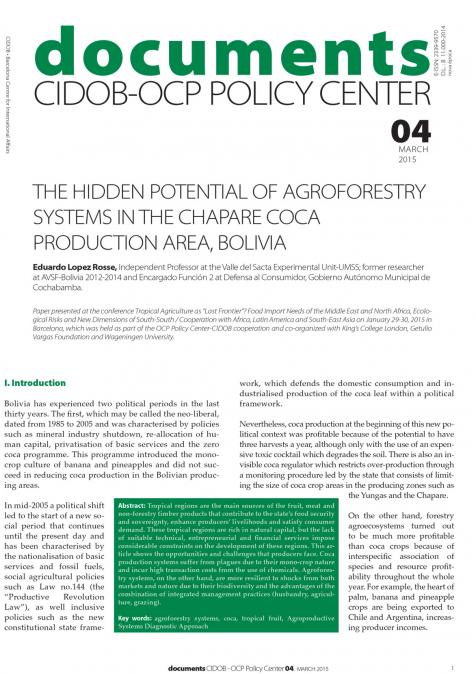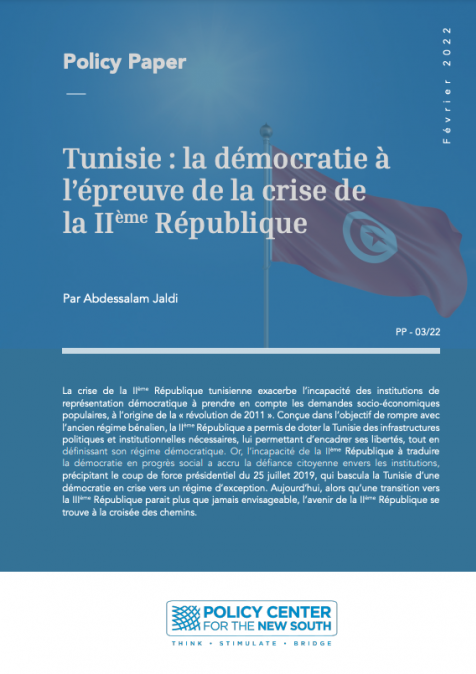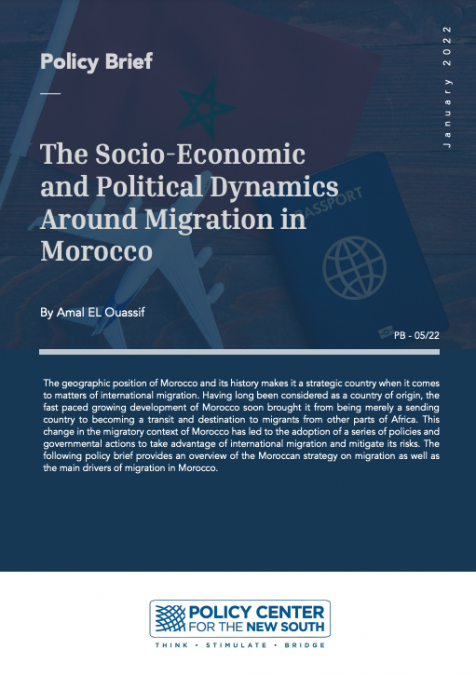Publications /
Policy Paper
Tropical regions are the main sources of the fruit, meat and non-forestry timber products that contribute to the state’s food security and sovereignty, enhance producers’ livelihoods and satisfy consumer demand. These tropical regions are rich in natural capital, but the lack of suitable technical, entrepreneurial and financial services impose considerable constraints on the development of these regions. This article shows the opportunities and challenges that producers face. Coca production systems suffer from plagues due to their mono-crop nature and incur high transaction costs from the use of chemicals. Agroforestry systems, on the other hand, are more resilient to shocks from both markets and nature due to their biodiversity and the advantages of the combination of integrated management practices (husbandry, agriculture, grazing).
This Policy Paper was produced within the framework of the CIDOB-OCP Policy Center partnership and presented at the international conference entitled “Tropical agriculture as last frontier? Food Import Needs of the Middle East and North Africa, Ecological Risks and New Dimensions of South-South Cooperation with Africa, Latin America and South-East Asia” organized in Rabat in January 2015.








